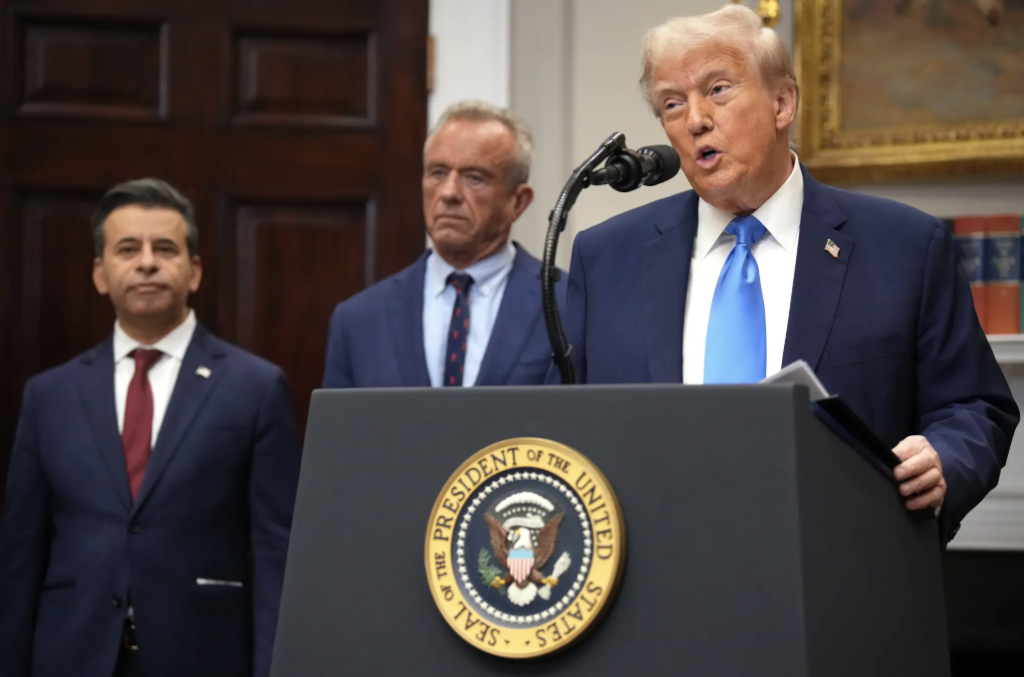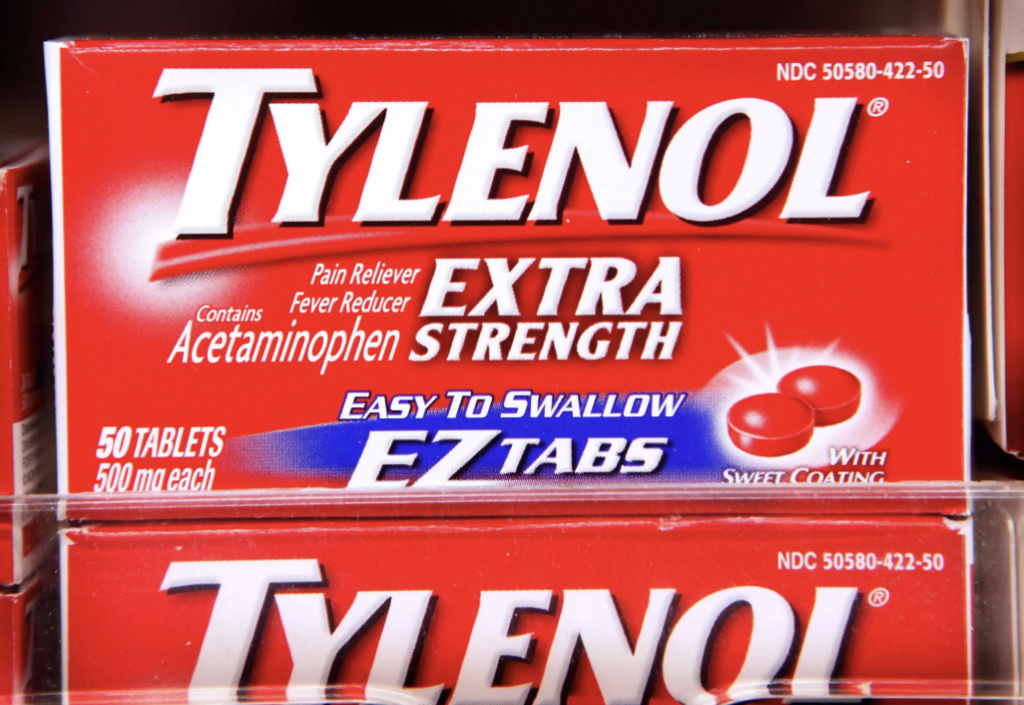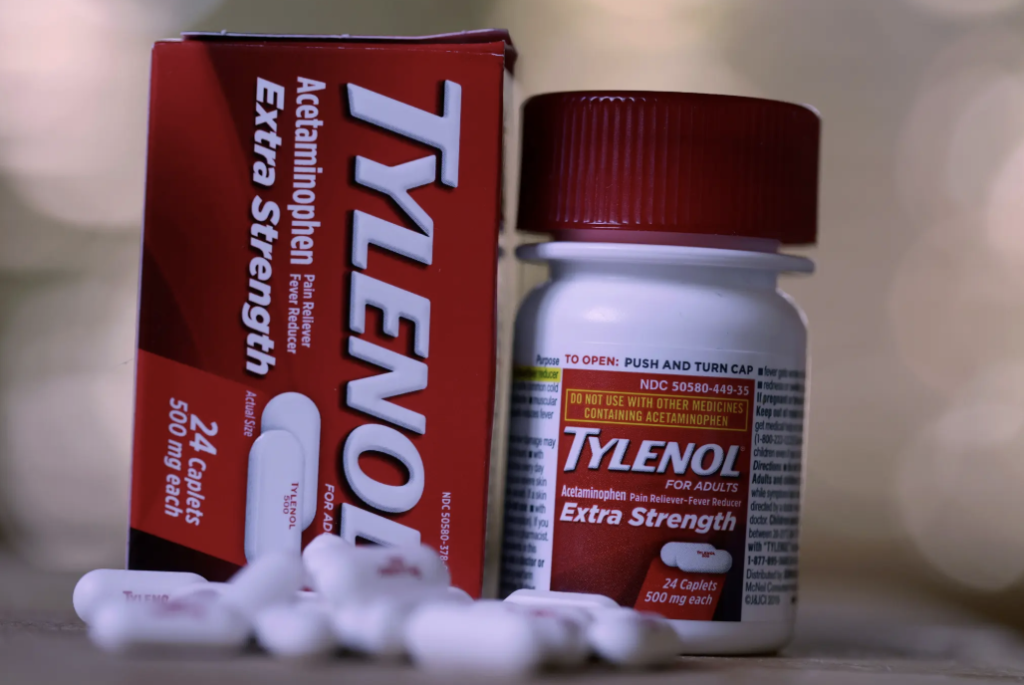The room went silent, then erupted into whispers, as President Trump stepped up to the podium Monday in the Roosevelt Room, issuing what many are calling a “stunning and unprecedented” warning: pregnant women should avoid taking Tylenol, citing studies linking the common painkiller to autism in children. “With Tylenol, don’t take it! Don’t take it,” Trump declared, his voice cutting through the tense air. The announcement immediately sent shockwaves across social media, splitting parents, medical professionals, and political observers alike.

Trump, flanked by Health and Human Services Secretary Robert F. Kennedy Jr. and FDA Commissioner Dr. Marty Makary, claimed the change was backed by a growing body of research, including recent studies from Mount Sinai and Harvard, showing a potential association between acetaminophen use during pregnancy and increased autism risk. “Ideally, you don’t take it at all,” he added, “but if there’s a high fever, that’s a different story.”
While Trump painted a dire picture of “fragile children” potentially affected by common medications, the reaction from the medical community was swift and polarized. Kenvue, the maker of Tylenol, released a statement calling the president’s claims “unsupported by credible science” and warning against unnecessary fear. “Decades of research confirm acetaminophen is safe during pregnancy,” they said.

Mothers on social media were left scrambling for answers. One mom tweeted, “I took Tylenol almost every week during pregnancy—am I putting my child at risk?” Another user wrote, “Why is the president scaring moms without FDA approval? This is dangerous.” Some applauded Trump for “raising awareness,” while others called the warning “irresponsible panic-mongering.”
Adding to the controversy, Trump recommended parents “spread out” vaccines instead of following the federal schedule, citing concerns about overloading children with multiple doses at once. He even pointed to lower autism rates among the Amish as possible evidence that limiting exposure to medications and vaccines could matter, though experts quickly criticized the comparison as misleading.

The White House cited supporting data from the Boston Birth Cohort and the Nurses Health Study, noting consistent associations between acetaminophen during pregnancy and neurodevelopmental disorders. The FDA confirmed it would update labels on all Tylenol products and send letters to physicians to alert them of potential risks “effective immediately.”
However, a significant twist in the story is that a direct causal link has not been definitively proven. HHS acknowledged that while associations exist, contrary studies exist, leaving room for doubt. Social media debates exploded over whether Trump’s warning was protective or fear-inducing. Hashtags like #TylenolTruth and #TrumpAutismAlert began trending, with netizens demanding more transparency.
Parents, experts, and politicians are now grappling with a central question: is this a groundbreaking public health alert, or an alarming overreach fueled by politics and personal opinion? The stakes are high, and families are watching closely for guidance from trusted physicians.
🚨 The debate is far from over—some experts fear panic, others praise the caution, and millions of American families are left wondering what the next step should be.
Leave a Reply